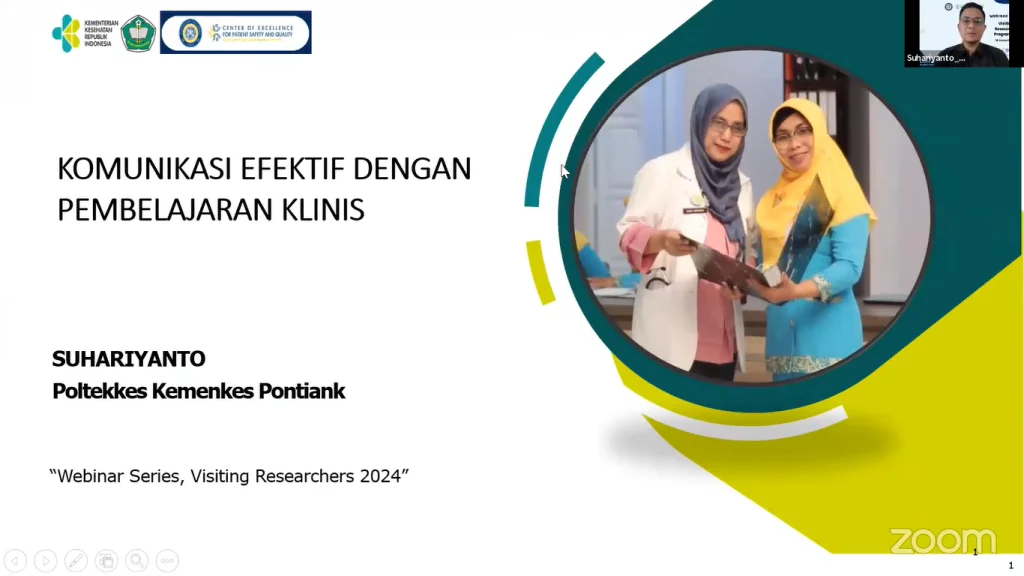UNAIR NEWS – Effective communication between nurses and patients is crucial and significantly impacts the quality of service and patient recovery. Healthcare workers must possess the capability to perform their duties. The Centre of Excellence for Patient Safety and Quality at Universitas Airlangga (UNAIR) organized a Zoom webinar series titled “Visiting Researcher Programme” on January 16, 2024.
The webinar featured Ns Suhariyanto S Kep M Kep, an effective communication trainer in patient safety and public speaking. He is also a graduate student in Nursing Science, focusing on Leadership and Nursing Management, at Universitas Indonesia (UI).
Harie, for short, delivered a presentation on effective communication in clinical learning. “This session focuses on healthcare workers’ responses when encountering unwanted events, effective communication, and the process of clinical education,” he said.

Why effective communication matters
In 2011, Harie noted, there was a rise in the incidence of unwanted events, with ineffective communication being the third most common cause. However, by 2013, the role of effective communication had risen to the second most significant factor. There was a growing recognition that effective communication significantly reduces the annual occurrence of unwanted events, such as medical errors.
“This serves as a warning that communication issues are one of the causes of unwanted events,” he said.
These incidents are often indicated to occur in the nursing sector. As it’s known, nurses are predominant in patient care. “Nearly 60 percent of care providers are nurses, who continuously deliver patient care for almost 24 hours a day. Therefore, enhancing effective communication skills among nurses is crucial,” he explained.
3V (Verbal, Vocal, Visual)
People consider that communication for healthcare workers as something ordinary. In fact, this is crucial for patient safety.
“Some say that a patient may encounter up to 15 healthcare workers for a service. Therefore, it is important for us to implement an approach to effective communication following patient safety standards,” Harie said.
He asserted that every part of the hospital must implement effective communication through three essential communication factors: the 3Vs, which include verbal (words), vocal (intonation), and visual (body language).

The implementation
Harie noted that before and after mentorship, nurses’ expertise in effective communication increased significantly. “The increase was almost in the range of 80-90 percent after mentoring, previously, it reached 40-60 percent,” he said.
Additionally, another significant increase was found in practice. Before mentoring, the average was between 45 and 55 percent, but after mentoring was provided to nurses at Hospital X, it increased to 85 to 100 percent.
Author: Maryam Fauziah
Editor: Feri Fenoria
Read also:









